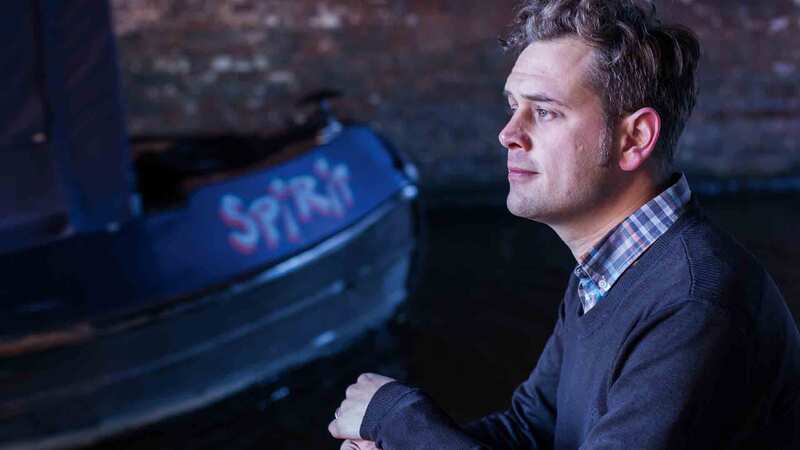You are viewing your 1 free article this month. Login to read more articles.
Andrew Miller's Pure and filthy Paris
Pure is Andrew Miller’s sixth novel. It won him the Costa book of the year and tells the story of a young engineer named Jean-Baptiste who is co-opted by the powers of 18th-century Versailles into deconstructing Paris’ most overcrowded cemetery and transporting its contents elsewhere.
Miller told his interviewer at the Hay Festival, Jon Gower, and the assembled audience that France has ever been a fascination for him. “As I grew up, there was a feeling that many good things in life come from France.” In fact, as per Miller’s novel Oxygen, Miller’s brother lives in France (in the same town from which Jean-Baptiste is said to come) and Miller himself lived for a year in Paris. “It was one of the happiest years of my life.”
The author discovered the real story in a book called The Hour of Our Death. “There was a half-page on the destruction of the cemetery. I was intrigued by the theatre of the event… burning lanterns, carts full of bones.”
He has actually been to the site of where the cemetery stood, now completely gone. “It’s a strange bit of Paris,” Miller said. “You seen how small the cemetery would have been – this place about the size of a rugby pitch, where the bodies were buried for 500 years.”
“I was also fascinated by the date. This happens in the mid-1970s… This suggests to me there was a digging up of the past so they could start again.” Part of this starting again was dissatisfaction with the heaped corpses of the cemetery: “A sense of modernity was abroad; and also, what people would tolerate had changed.”
This was a decade teetering on extreme social change and revolution. “I didn’t want to prefigure the revolution,” said Miller, instead saying he touched upon it via the differing views and social consciousness of his characters. “In the first draft of the book I did continue on into the revolution, but I was persuaded not to.”
Jean-Baptiste’s views are the source of the book’s title, which initially was Uncertainty and changed halfway through the writing process to represent the way in which his hero, who is initially solidly clear in his thinking, “through the force of circumstance, is made to come into the world and change his ideas”.
While ideas and thoughts are key to the novel’s characters, their experiences are rooted in the corporeal, or as one line in the novel goes, “The dung of the mighty is much like the dung of the poor.”
“It’s very important for me, in writing fiction, to have things rooted in the physical,” said Miller. With this comes the shock of physical brutality, as in a moment in the climax of the novel. “Acts of violence are always shocking – you’re never quite ready for them,” said Miller of that moment when “things go terribly wrong”.
Gower described Miller is “a poster boy for creative writing”, having attended the famous University of East Anglia Creative Writing course followed by another at Lancaster University. His technique is to “write fairly quickly” then spend nearly three years redrafting each novel. “You’re modeling all the time,” he said, to get a sentence to the point of “perfect adequacy”. “That’s what I want in literature as a reader, but it does take time.”
“I’m not particularly working on anything at the moment,” Miller confessed. “When I finished this sixth book, I decided to look up and see where I am.”
After the Costa win and his most rapturously received novel to date, it was clear exactly where Miller is now: the top.
Pure by Andrew Miller is out now, published by Sceptre














